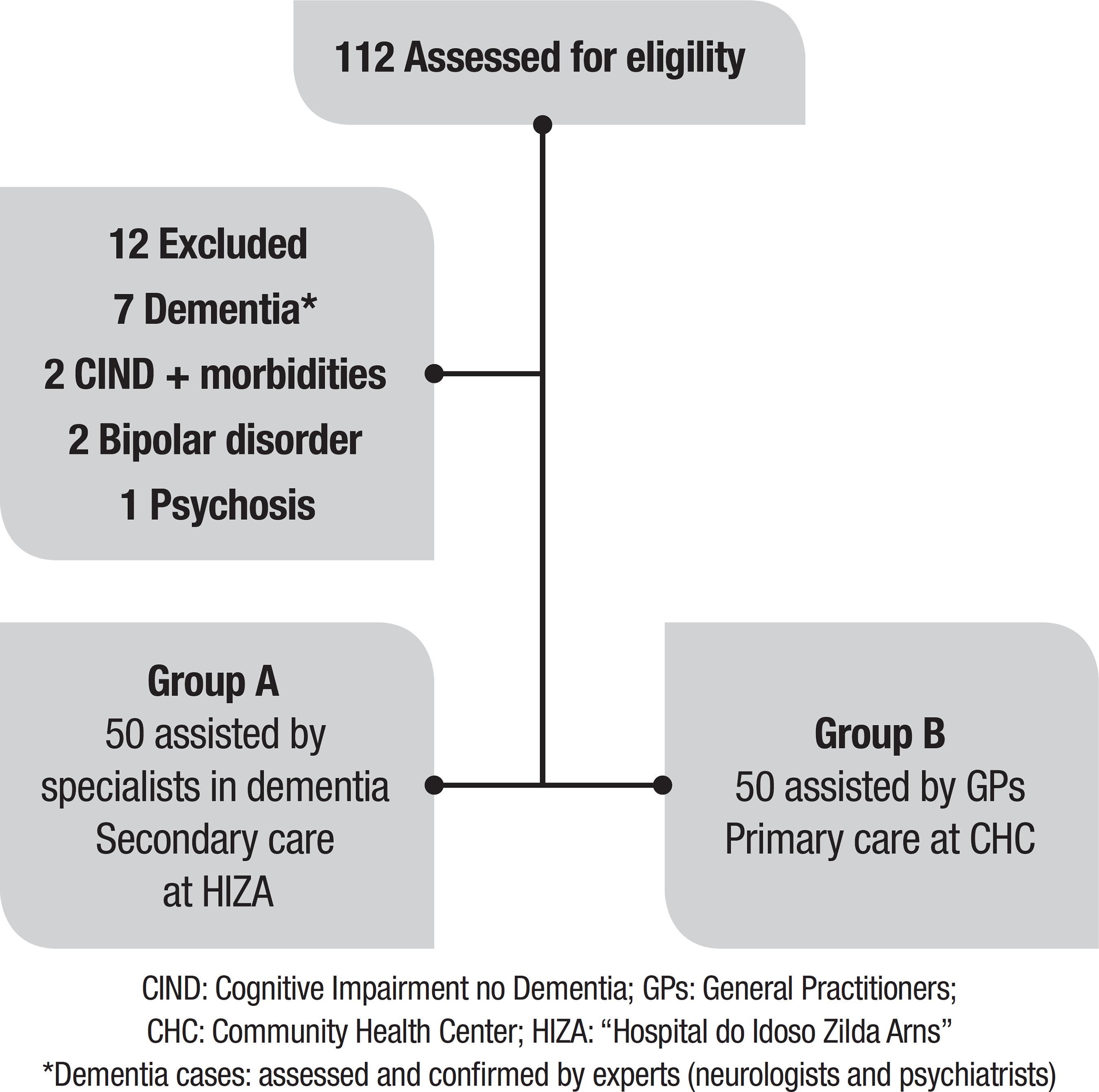Abstract
The ANU-ADRI is a self-report tool that assesses risk for Alzheimer’s Disease (AD).
Objective:
To validate an adapted Portuguese version of this instrument and to carry out the reliability Test-Retest of the ANU-ADRI in Brazil.
Methods:
In this longitudinal study, the sample was formed (n=100) by two groups (A and B): each comprising 50 patients assisted by GPs (general practitioners) or specialists in dementia. All participants were cognitively healthy upon screening using the MMSE. The ANU-ADRI was applied at baseline (Test) and again within 1 week of the test (Retest).
Results:
There was a correlation between the mean scores of the ANU-ADRI Test and Retest (r=0.918, P<0.001). Group A had higher ANU-ADRI scores than those of group B (P<0.05). There was a moderate negative linear relation between the ANU-ADRI and MMSE scores (r= -0.353, P<0.001).
Conclusion:
The ANU-ADRI is a valid and reliable instrument to assess whether community-dwelling Brazilians are at greater risk for AD. Low levels of education were associated with higher risk scores on the ANU-ADRI.
Key words:
Alzheimer’s disease; dementia; risk factors; primary prevention; geriatric assessment





